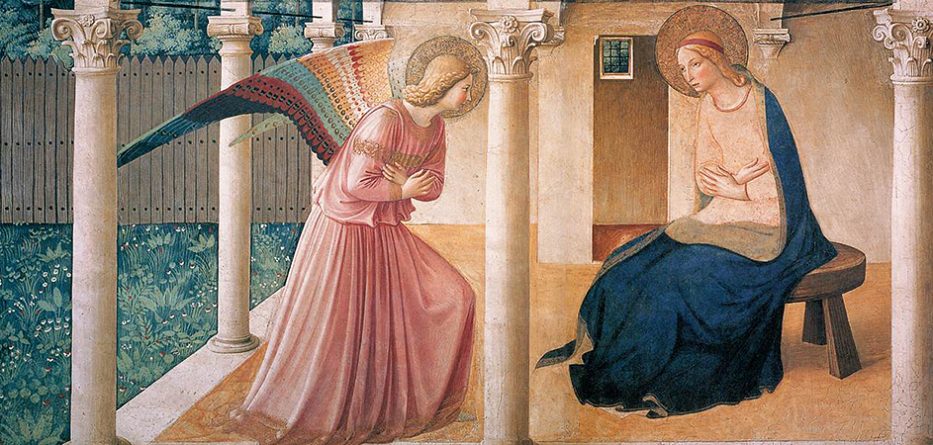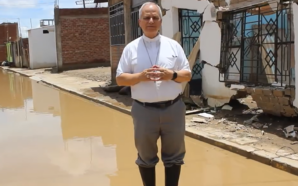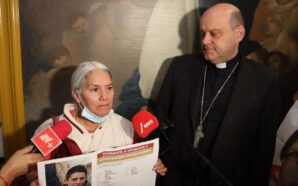Most Reverend Vincent Long Van Nguyen OFM Conv DD STL, Bishop of Parramatta
Homily for the fourth Sunday of Advent, 2023.
Readings: 2 Samuel 7:1-5; 8-12; Romans 16:25-27; Luke 1:26-38
23 December 2023
Learning from God’s subversive interruptions
My dear friends,
Life can be full of surprises which can disrupt and upset our plans. Several years ago, while I was a pastor in Melbourne, I was ready to refurbish the parish church. I had prepared for this project in every way possible when quite unexpectedly, I was asked to go to Rome and work in my Order’s headquarters. After some initial anxieties, I decided to follow the call beyond the familiar routine.
In hindsight, I often ask myself how different the course of my life would have been if I had said no to the unexpected call. Where would you and I be if God hadn’t interrupted yours and my regularly scheduled programs with a news flash? How do we respond when a job is terminated, an illness strikes, a relocation is in the forecast, a tragedy takes place, or a relationship is lost?
We can look at the quick turns on our road of life as annoying interruptions, or we can see them as divine disruptions – indeed strategic times when God puts a pause on our predetermined plans. When we can see them as a blessing rather than a curse, it changes everything.
Scriptures on this last Sunday in Advent offer us stories of faith that teach us how to respond to life’s unexpected moments. In the first reading, we hear of the story of King David who had settled into his royal palace after a series of military conquests. He wanted to build a temple in Jerusalem in order to house the Ark of the Covenant and to stand as a national symbol of greatness. It came as a surprise to David that God was more interested in relationship-building than empire-building. Through the prophet Nathan, it was revealed that God was chiefly concerned for the people. Hence, David’s priority ought to be building a house of justice, inclusion and solidarity for God’s people as a witness to the nations. It was the internal transformation of hearts and minds rather than the external symbols of shrines and temples that set them apart. It is a lesson yet to be truly absorbed as both the history of Zionism and Christianity has shown.
The biblical narrative is at pains to tell us that God cannot be controlled or circumscribed by human desire for certitude and security. Thus, from Moses’ meeting with God at the burning bush to the revelation to Elijah on Mount Horeb, the divine cannot be named; he cannot be seen; he cannot be housed; he cannot be contained or exhausted by any human creed or formula. The transcendence of God defies our attempt to domesticate and to restrict the divine by human conventions. King David learned a humbling and subversive lesson through the intervention of Nathan. The God of Israel was not interested in symbols of worldly power, conquest and triumphalism. Instead, he was concerned with the creation of a model society that reflected his sovereignty. This lesson is even more pertinent today in the context of Israel and Palestinian conflict.
The Gospel also speaks to us about divine intervention that upsets human expectations. But whereas the kings of Israel, including David, succumbed to the temptation of power, Mary is presented as an ideal model of faith. In the story of the annunciation, Mary was disturbed by the words of the angel that she would conceive by the power of the Holy Spirit. Her plan to have a normal life with Joseph was interrupted. In spite of the mystery and uncertainty, Mary gave that faith-filled response “I am the handmaid of the Lord and let it be done unto me according to your word”. Mary would later express her alignment with God’s plan through the Magnificat, which is an alternative vision to the dominant narrative of “might is right”. The God of distributive justice, generosity and inclusion mirrors the God who was concerned for the house of David.
My dear friends,
The Word of God today is a summons to us to live our lives with radical openness to God’s will that is revealed to us in so many ways. Like David and Mary, we need to be ready for divine interruptions; we need to adjust to life’s constant changes. Growth and transformation can occur if we learn to discern and act on what God requires of us in the light of lived experience.
After hearing the angel’s message, Mary’s life was fundamentally changed. She aligned her heart and mind to God’s unfolding plan. We must have the courage to do the same individually and as a body of Christ. We are called to act as catalysts for the transformation of the world in accordance with God’s plan. Our reading of the signs of the times and fidelity to the Gospel must impel us to model a new way that is in sync with the active presence and power of God in history.
Let us pray that we have the faith and courage of Mary in responding to unexpected events and interruptions that come our way. May we not be afraid to wrestle with the God of relational fidelity and freedom. May we learn to live in vulnerable trust. May our Yes be total and unreserved as we endeavour to carry out the plan God has for every one of us.








